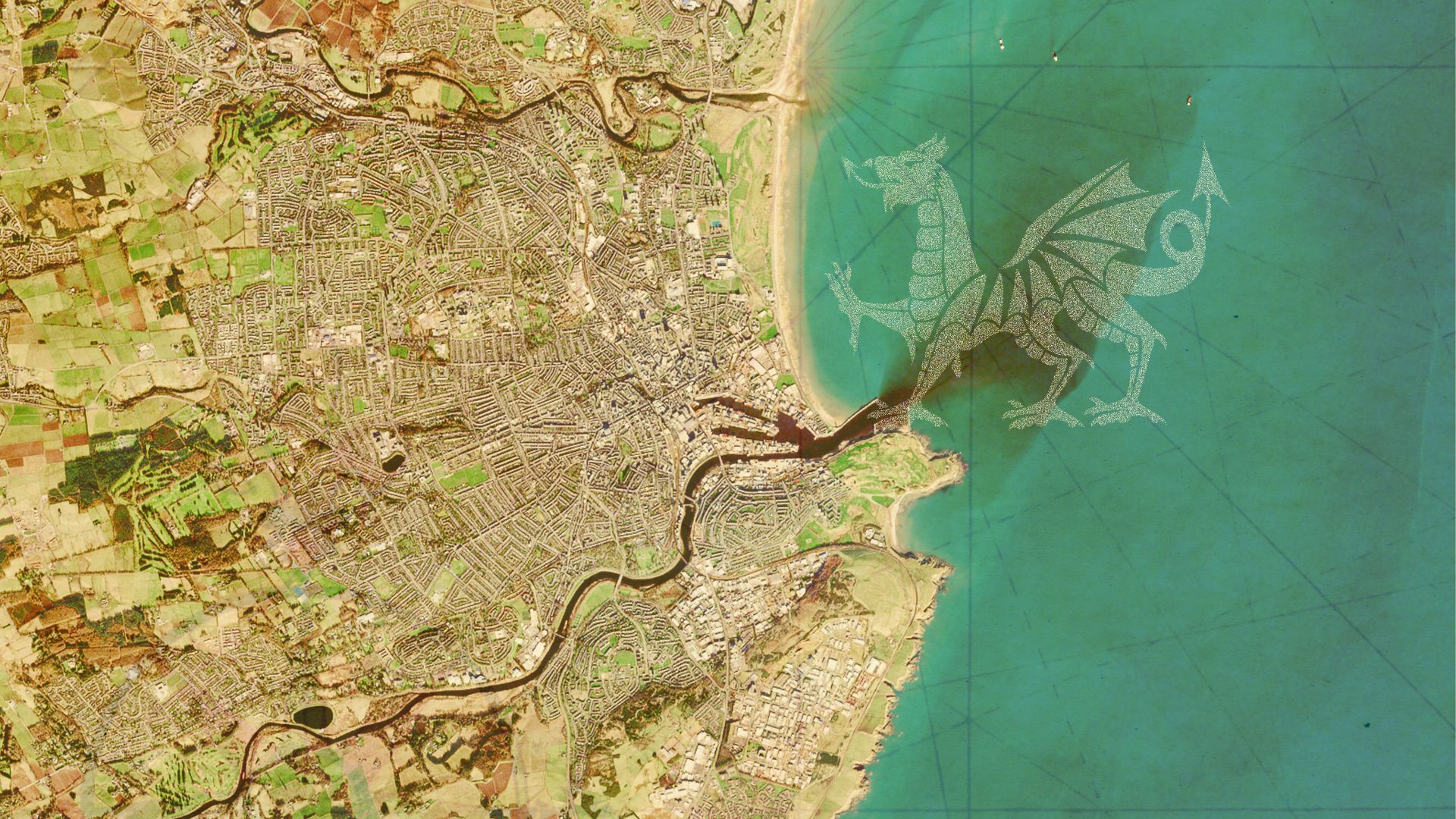Nickel Boys (selected cinemas)
In a strong start to the cinematic year, RaMell Ross’s luminous, powerful and often disturbing adaptation of Colson Whitehead’s 2019 Pulitzer Prize-winning novel undoubtedly tops the bill.
Tallahassee, Florida, 1962: Elwood Curtis (Ethan Herisse) lives with his adoring grandmother Hattie (Aunjanue Ellis-Taylor), draws inspiration from Martin Luther King Jr, and is encouraged by his teacher Mr. Hill (Jimmie Fails), a Freedom Rider, to enrol at a community college. En route, he hitches a ride with a man who, it transpires, has stolen the car. The cops treat Elwood as an accomplice and send him to the reformatory school, Nickel Academy.
Segregated by race and ruled by brutality, Nickel is the snarling institutional face of the Jim Crow era (based on the real-life Arthur Dozier School for Boys in Marianna, Florida, where nearly 100 deaths were documented after its permanent closure in 2011).
Amid the horrors, Elwood finds fraternal comfort in his friendship with Turner (Brandon Wilson), who is less optimistic about the prospects for racial justice and concentrates on the business of day-to-day survival. In one of many audacious auteur interventions, Ross splices in footage from Stanley Kramer’s The Defiant Ones (1958), in which two escaped prisoners, played by Sidney Poitier and Tony Curtis, must cooperate to survive: in so doing, he forces the viewer to ask whether idealism and collaboration alone are sufficient to overcome the systemic bigotry represented by Nickel.
Most striking of all is the use of the first-person perspective: for much of the movie, we see the world through Elwood’s eyes and then Turner’s. This is a well-established cinematic device: deployed, for instance, in Abel Gance’s Napoléon (1927) and Delmer Daves’s Dark Passage (1947). In Nickel Boys, the effect is immersive and absorbing – but also subverts the audience’s assumptions. Even as we share the boys’ perspective, we quickly grasp that there are sharp limits to what we can truly know of the oppression they suffer.
The plot is non-linear, jumping forward intermittently to scenes of Elwood as an adult (now played by Daveed Diggs), running a moving business in New York. There is a twist in the tale, too, both tragic and redemptive. A stunning achievement, Nickel Boys deserves – at minimum – an Oscar nomination for best picture.
We Live in Time (general release)
In less accomplished hands, John Crowley’s tragicomic love story might feel like a by-the-numbers retread of the Richard Curtis canon. In practice, the terrific on-screen chemistry and fine performances of Andrew Garfield and Florence Pugh recall the older tradition of, say, Spencer Tracy and Katharine Hepburn, or Jack Lemmon and Shirley MacLaine.
So when Tobias (Garfield), a mild Weetabix executive, tells Almut (Pugh), an ambitious chef of Anglo-Bavarian cuisine, that “I’m worried there’s a very distinct and real possibility that I am about to fall in love with you”, what sounds like an early Hugh Grant speech is, in fact, the trigger for an authentic row about her readiness to have children. “I’m sorry, but what the actual fuck are you even talking about right now?” Almut says. “… there’s a little bit of me that thinks ‘fuck you’ for even asking”.
The film is an essay on time and mortality that is unapologetically tender, without sinking into sentimentality. Tobias meets Almut in A&E after she has run him over, and their awkward, immediate attraction is beautifully and comically rendered.
As if to emphasise the brevity of all things, and the importance of memory, the movie jumps frequently between timeframes. From its earliest moments, we know that Almut has had ovarian cancer, and that it has returned. Having chosen only a partial hysterectomy the first time round, she has indeed had a child with Tobias, named Ella (Grace Delaney). The question now is how to approach whatever time is left to her.
Pugh is superb in her portrayal of a strong, rigorous woman, full of love but determined to be remembered as more than “someone’s dead fucking mum”.
Should she finally get married to Tobias, or focus on her dream of winning the Bocuse d’Or, the culinary equivalent of the Olympics? In the resolution of that dilemma is bound up the reconciliation of the personal and the familial, and of past, present and future.
Nosferatu (selected cinemas)
More than 200 movies have been inspired by Bram Stoker’s Dracula (1897) – among them FW Murnau’s silent masterpiece, Nosferatu: A Symphony of Horror (1922). Why make another?
For Robert Eggers, the challenge was clearly irresistible and he does not disappoint in this visceral, uncompromising reimagining of the Murnau version. In 1838, a young lawyer, Thomas Hutter (Nicholas Hoult) is despatched by his boss Herr Knock (Simon McBurney) from the fictional German town of Wisborg to the Carpathian mountains, where Count Orlok (Bill Skarsgård) – “very old and eccentric” – will sign deeds to a property. He leaves behind his bride Ellen (Lily-Rose Depp), who, unbeknown to the couple, has already been possessed by the demon vampire.
Swathed in a greatcoat, rumbling in an ancient language and monstrous in form, Orlok has none of the late Victorian dash of Stoker’s debonair character. His menace is feral rather than seductive, his predatory nature unconcealed and horrifying.
In Thomas’s absence, Ellen falls desperately ill at the home of her friend Anna Harding (Emma Corrin) and her husband Friedrich (Aaron Taylor-Johnson). After conventional medicine fails, Dr Wilhelm Sievers (Ralph Ineson) calls on the occult wisdom of Albin Eberhart von Franz (Willem Dafoe) – who quickly realises that they are confronting a diabolical menace.
Those who have seen the director’s previous movies – The Witch (2015), The Lighthouse (2019) and The Northman (2022) – will be familiar with his relentless, primal style. Magnificently shot by Jarin Blaschke, this is a gothic horror of consuming darkness and meticulous detail that does not let up for a second. I loved it. Don’t miss Jason Solomons’ interview with Eggers in the latest issue of TNE.
2073 (selected cinemas)
The best speculative fiction, such as Margaret Atwood’s The Handmaid’s Tale (1985), is firmly rooted in contemporary practices, warning of what may be to come. Opening in the charred, dystopian landscape of New San Francisco in 2073 – 37 years after a terrible disruption described only as the “event” – Asif Kapadia’s powerful docu-drama is a voice message in a bottle sent back in time by the otherwise mute Ghost (Samantha Morton).
Her world is one of terrible scarcity, pollution, repression, totalitarian surveillance and social stratification, in which a tiny caste of the hyper-wealthy lives in skyscrapers above the swarming drones and noxious clouds. She reads from a salvaged copy of The Autobiography of Malcolm X.
Kapadia, who won an Oscar for Amy (2015), scrolls back to the pathologies of our own times and deploys the testimony of first-rate journalists such as Carole Cadwalladr, Anne Applebaum, Maria Ressa, and Rana Ayyub to describe present-day authoritarianism, techno- populism, disinformation, environmental degradation, and – in the case of Muslims in India and Uyghurs in China – repression of minorities.
In a deft touch, he also patches in scenes from previous dystopian movies, notably Minority Report (2002) and Children of Men (2006) and alludes directly to Orwell’s Nineteen Eighty-Four (1949) as interrogating machines ask captives: “What is 2+2?”.
It has been argued – absurdly – that 2073 shows us nothing new. This, of course, is Kapadia’s whole point: that the constituent forces of political, cultural and ecological disaster are all now in place, and the only remaining question is whether we conspire in their convergence or do something about it. A Cassandra he may be – but Cassandra was right. Unmissable.
The Order (selected cinemas)
There is a scene in Justin Kurzel’s bracing true-crime thriller where the white militia leader Bob Mathews (Nicholas Hoult again) meets Richard Butler (Victor Slezak), founder of the Aryan Nations and pastor of the Church of Jesus Christ-Christian on an isolated country road in Idaho.
Butler warns the younger man not to take the path of violent uprising, funded by crime, to pursue the white supremacist objectives they share. If he is patient, they will soon have “true believers” in Congress. But Mathews is impatient for his racist revolution.
It is grim to reflect that both have turned out to be at least partly right. The political violence espoused by Mathews has been a terrible force in American life for decades, from the Oklahoma City bombing in 1995, via the Charlottesville neo-Nazi riots in 2017, to the insurrection of January 6, 2021. But the far right’s capture of high office and legislative power in Washington DC has also become a clear and present danger to the Republic.
Set in 1983-4 and adapted from The Silent Brotherhood (1989) by Kevin Flynn and Gary Gerhardt, The Order is a mostly faithful account of the movement’s origins in the Pacific northwest. Jude Law – grizzled, paunchy, damaged – is FBI agent Terry Husk (a composite character), who arrives in the small town of Coeur D’Alene, seeking respite after the failure of his marriage and the New York’s mob’s horrific execution of one of his informants.
But taking it easy is not in his nature. With the help of local cop Jamie Bowen (Tye Sheridan), Husk is soon on the trail of Mathews’ growing movement. When the two adversaries – Fed and white supremacist – meet in the forest, there are echoes of the famous diner scene with Al Pacino and Robert De Niro in Heat (1995).
The car chase and robbery sequences, meanwhile, are reminiscent of vintage Michael Mann or William Friedkin. And Adam Arkapaw’s cinematography, capturing the desolate beauty of the north-western forests, rivers and mountains, is terrific. A superior cop movie with political depth that sticks in the memory.




